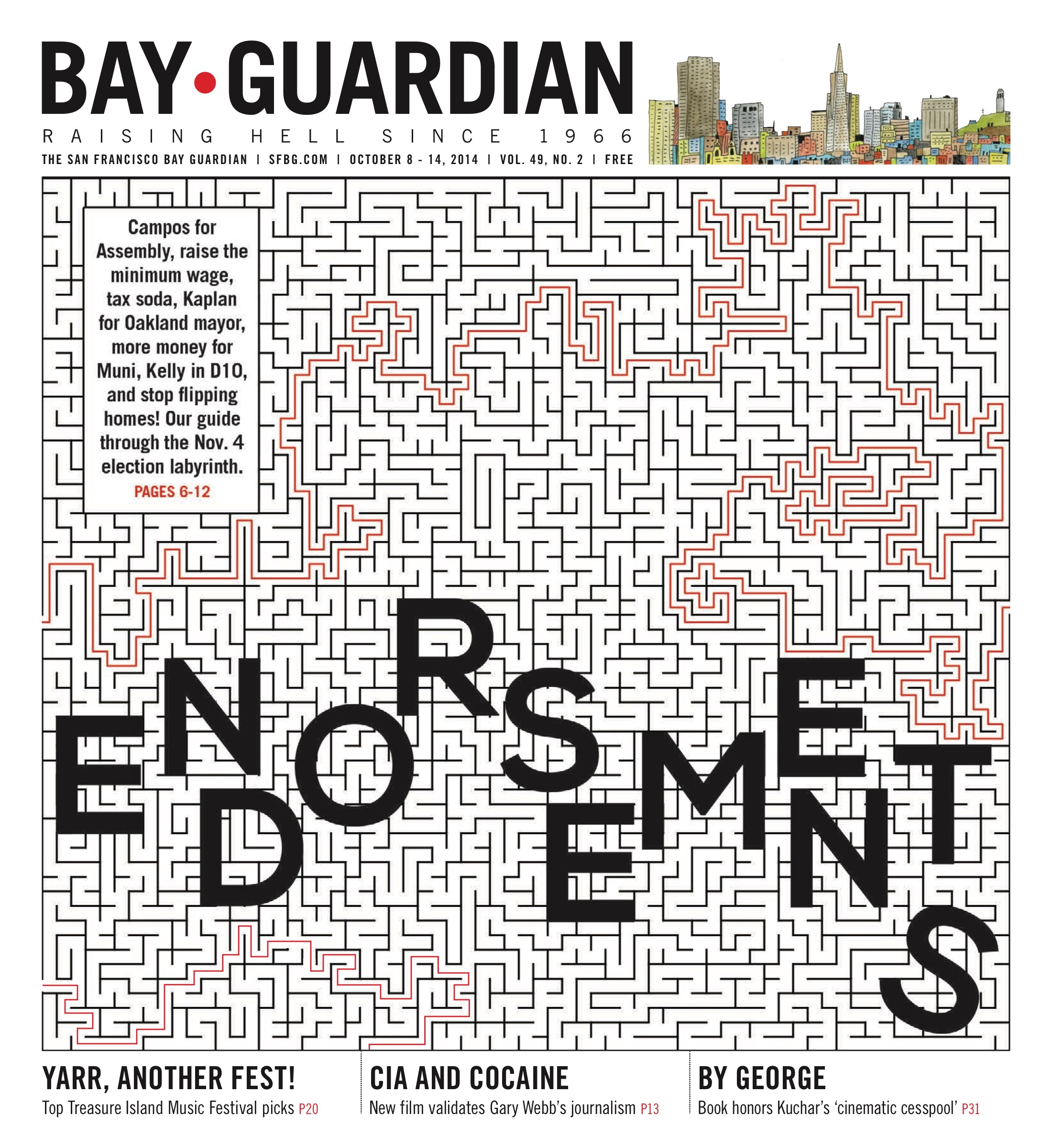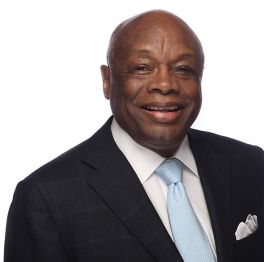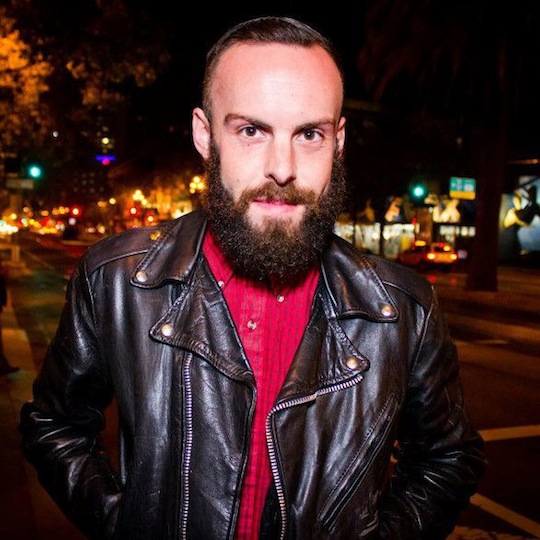By Melinda Welsh
This one has all the ingredients of a dreamed-up Hollywood blockbuster: Pulitzer Prize-winning journalist uncovers a big story involving drugs, the CIA, and a guerrilla army. Despite threats and intimidation, he writes an explosive exposé and catches national attention. But the fates shift. Our reporter’s story is torn apart by the country’s leading media; he is betrayed by his own newspaper. Though the big story turns out to be true, the writer commits suicide and becomes a cautionary tale.
Hold on, though. The above is not fiction.
Kill the Messenger, an actual film coming soon to a theater near you, is the true story of Sacramento-based investigative reporter Gary Webb, who earned both acclaim and notoriety for his 1996 San Jose Mercury News series that revealed the CIA had turned a blind eye to the U.S.-backed Nicaraguan Contras trafficking crack cocaine in South Central Los Angeles and elsewhere in urban America in the 1980s. One of the first-ever newspaper investigations to be published on the Internet, Webb’s story gained a massive readership and stirred up a firestorm of controversy and repudiation.
After being deemed a pariah by media giants like The New York Times, Los Angeles Times and The Washington Post, and being disowned by his own paper, Webb eventually came to work in August 2004 at Sacramento News & Review. Four months later, he committed suicide at age 49. He left behind a grieving family — and some trenchant questions:
Why did the media giants attack him so aggressively, thereby protecting the government secrets he revealed? Why did he decide to end his own life? What, ultimately, is the legacy of Gary Webb?
Like others working at our newsweekly in the brief time he was here, I knew Webb as a colleague and was terribly saddened by his death. Those of us who attended his unhappy memorial service at the Doubletree Hotel in Sacramento a week after he died thought that day surely marked a conclusion to the tragic tale of Gary Webb.
But no.
Because here comes Kill the Messenger, a Hollywood film starring Jeremy Renner as Webb; Rosemarie DeWitt as Webb’s then wife, Sue Bell (now Stokes); Oliver Platt as Webb’s top editor, Jerry Ceppos; and a litany of other distinguished actors, including Michael K. Williams, Ray Liotta, Andy Garcia, and Robert Patrick. Directed by Michael Cuesta (executive producer of the TV series Homeland), the film opens in a “soft launch” across the country and in Bay Area theaters on Oct. 10.
Members of Webb’s immediate family—including his son Eric, who lives near Sacramento State and plans a career in journalism—expect to feel a measure of solace upon the release of Kill the Messenger.
“The movie is going to vindicate my dad,” he said.
For Renner — who grew up in Modesto and is best known for his roles in The Bourne Legacy, Mission Impossible: Ghost Protocol, The Avengers and The Hurt Locker — the film was a chance to explore a part unlike any he’d played before. During a break in filming Mission Impossible 5, he spoke to us about his choice to star in and co-produce Kill the Messenger.
“The story is important,” said Renner. “It resonated with me. It has a David and Goliath aspect.
“He was brave, he was flawed. … I fell in love with Gary Webb.”
EARLY VIRAL JOURNALISM
There’s a scene in Kill the Messenger that will make every investigative journalist in America break into an insider’s grin. It’s the one where — after a year of tough investigative slogging that had taken him from the halls of power in Washington, D.C., to a moldering jail in Central America to the mean streets of South Central Los Angeles — Renner as Webb begins to write the big story. In an absorbing film montage, Renner is at the keyboard as it all comes together — the facts, the settings, the sources. The truth. The Clash provides the soundtrack, with Joe Strummer howling: Know your rights / these are your rights … You have the right to free speech / as long as you’re not dumb enough to actually try it.
It took the real Gary Webb a long time to get to this point in his career.
His father, a U.S. Marine, moved Webb around a lot in his youth, from California to Indiana to Kentucky to Ohio. He wound up marrying his high school sweetheart, Sue Bell, with whom he had three children. Inspired by the reporting that uncovered Watergate and in need of income, he left college three units shy of a degree and went to work at The Kentucky Post, then The Plain Dealer in Cleveland, where he rose quickly through the ranks of grunt reporters. Dogged in his pursuit of stories, Webb landed a job at the Mercury News in 1988 and became part of a team that won a Pulitzer Prize in 1989 for reporting on the Loma Prieta earthquake.
It was the summer of 1996 when the lone-wolf journalist handed his editors a draft of what would become the three-part, 20,000-word exposé “Dark Alliance.” The series was exhaustive and complex. But its nugget put human faces on how CIA operatives had been aware that the Contras (who had been recruited and trained by the CIA to topple the leftist Sandinista government in Nicaragua) had smuggled cocaine into the United States and, through drug dealers, fueled an inner-city crack-cocaine epidemic.
When “Dark Alliance” was published on Aug. 18 of that year, it was as if a bomb had exploded at the Mercury News. That’s because it was one of the first stories to go globally viral online on the paper’s then state-of-the-art website. It was 1996; the series attracted an unprecedented 1.3 million hits per day. Webb and his editors were flooded with letters and emails. Requests for appearances piled in from national TV news shows.
“Gary’s story was the first Internet-age big journalism exposé,” said Nick Schou, who wrote the book Kill the Messenger, on which the movie is partially based, along with Webb’s own book version of the series, Dark Alliance. “If the series had happened a year earlier it, ‘Dark Alliance’ just would have come and gone,” said Schou.
As word of the story spread, black communities across America — especially in South Central Los Angeles — grew outraged and demanded answers. At the time, crack cocaine was swallowing up neighborhoods whole, fueling an epidemic of addiction and crime. Rocked by the revelations, U.S. Rep. Maxine Waters, congresswoman for Los Angeles’s urban core to this day, used her bully pulpit to call for official investigations.
But after a six-week honeymoon for Webb and his editors, the winds shifted. The attacks began.
On Oct. 4, The Washington Post stunned the Mercury News by publishing five articles assaulting the veracity of Webb’s story, leading the package from page one. A few weeks later, The New York Times joined with similar intent.
The ultimate injury came when the L.A. Times unleashed a veritable army of 17 journalists (known internally as the “Get Gary Webb Team”) on the case, writing a three-part series demolishing “Dark Alliance.” The L.A. paper — which appeared to onlookers to have missed a giant story in its own backyard — was exhaustive in its deconstruction, claiming the series “was vague” and overreached. “Oliver Stone, check your voice mail,” summed Post media columnist Howard Kurtz.
Now, even some of Webb’s supporters admitted that his series could have benefited from more judicious editing. But why were the “big three” so intent on tearing down Webb’s work rather than attempting to further the story, as competing papers had done back in the day when Bob Woodward and Carl Bernstein broke the Watergate scandal?
Some say it was the long arm of former President Ronald Reagan and his team’s ability to manipulate the gatekeepers of old media to its purposes. (Reagan had, after all, publicly compared the Contras to “our Founding Fathers” and supported the CIA-led attempt to topple the Sandinista government.)
Others say that editors at the “big three” were simply affronted to have a midsize paper like the Mercury News beat them on such a big story. An article in the Columbia Journalism Review claimed some L.A. Times reporters bragged in the office about denying Webb a Pulitzer.
One of their big criticisms was that the story didn’t include a comment from the CIA. When reporters at the big three asked the agency if Webb’s story was true, they were told no. The denial was printed in the mainstream media as if it were golden truth.
Other issues fueled controversy around Webb’s story. For example: It was falsely reported in some media outlets — and proclaimed by many activists in the black community — that Webb had proven the CIA was directly involved in drug trafficking that targeted blacks. He simply did not make this claim.
In some ways, Webb became the first reporter ever to benefit from, and then become the victim of, a story that went viral online.
After triumphing in the early success of the series, Webb’s editors at the Mercury News became unnerved and eventually backed down under the pressure. Jerry Ceppos, the paper’s executive editor, published an unprecedented column on May 11, 1997, that was widely considered an apology for the series, saying it “fell short” in editing and execution.
When contacted by us, Ceppos, now dean of the Manship School of Mass Communication at Louisiana State University, said he was only barely aware of the film coming out and wasn’t familiar with the acting career of Oliver Platt, who plays him in the movie. “I’m the wrong person to ask about popular culture,” he said.
Asked if he would do anything differently today regarding Gary Webb’s series, Ceppos, whose apologia did partially defend the series, responded with an unambiguous “no.”
“It seems to me, 18 years later, that everything still holds up. … Everything is not black and white. If you portrayed it that way, then you need to set the record straight. I’m very proud that we were willing to do that.”
Some find irony in the fact that Ceppos, in the wake of the controversy, was given the 1997 Ethics in Journalism Award by the Society of Professional Journalists.
Webb, once heralded as a groundbreaking investigative reporter, was soon banished to the paper’s Cupertino bureau, a spot he considered “the newspaper’s version of Siberia.” In 1997, after additional run-ins with his editors, including their refusal to run his follow-up reporting on the “Dark Alliance” series, he quit the paper altogether.
But a year later, he was redeemed when CIA’s inspector general, Frederick Hitz, released his 1998 report admitting that the CIA had known all along that the Contras had been trafficking cocaine. Reporter Robert Parry, who covered the Iran-Contra scandal for The Associated Press, called the report “an extraordinary admission of institutional guilt by the CIA.” But the revelation fell on deaf ears. It went basically unnoticed by the newspapers that had attacked Webb’s series. A later internal investigation by the Justice Department echoed the CIA report.
But no apology was forthcoming to Webb, despite the fact that the central finding of his series had been proven correct after all.
‘STAND UP AND RISK IT ALL’
It was eight days after Webb’s death when a few hundred of us gathered in Sacramento Doubletree Hotel’s downstairs conference room for an afternoon memorial service. Photo collages of Webb were posted on tables as mourners filed into the room. There he was featured in an Esquire magazine article recounting his saga. Family members and friends, longtime colleagues, and SN&R staffers packed into the room.
My own distress at Webb’s passing wasn’t fully realized until my eyes lit on his Pulitzer Prize propped on a table just inside the entryway. It was the first one I’d ever seen. I wondered how many more exceptional stories he could have produced if things had gone differently.
“He wanted to write for one of the big three,” said Webb’s brother Kurt. “Unfortunately, the big three turned [on him].”
Praise for the absent journalist — his smarts, guts, and tenacity — flowed from friends, colleagues and VIPs at the event. A statement from now U.S. Secretary of State John Kerry, then a senator, had been emailed to SN&R: “Because of [Webb]’s work, the CIA launched an Inspector General’s investigation that found dozens of troubling connections to drug-runners. That wouldn’t have happened if Gary Webb hadn’t been willing to stand up and risk it all.”
Renner was hesitant to say if those who watch Kill the Messenger will leave with any particular take-home lesson. “I want the audience to walk away and debate and argue about it all,” he said of his David and Goliath tale. And then, “I do believe [the film] might help create some awareness and accountability in government and newspapers.” And what would the real live protagonist of Kill the Messenger have thought of it all? It’s at least certain he’d have been unrepentant. In the goodbye letter his ex-wife received on the day of his suicide, Gary Webb told her: “Tell them I never regretted anything I wrote.”








